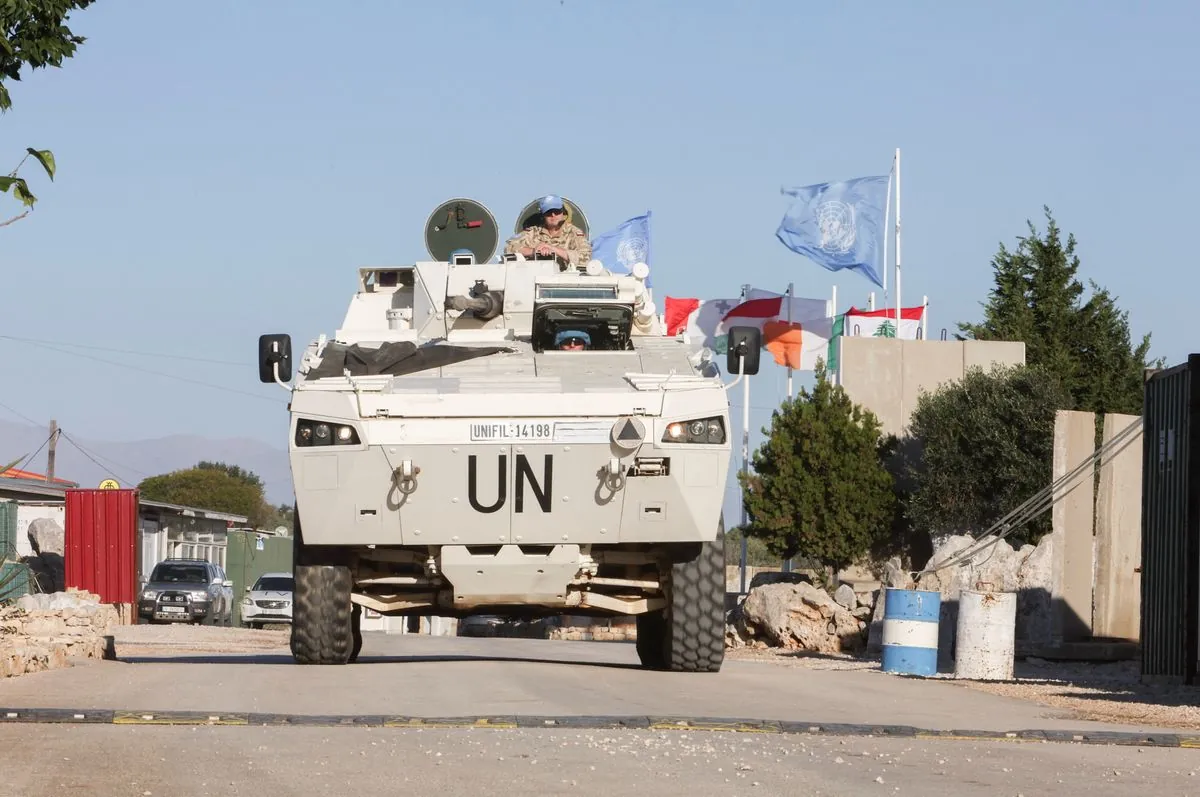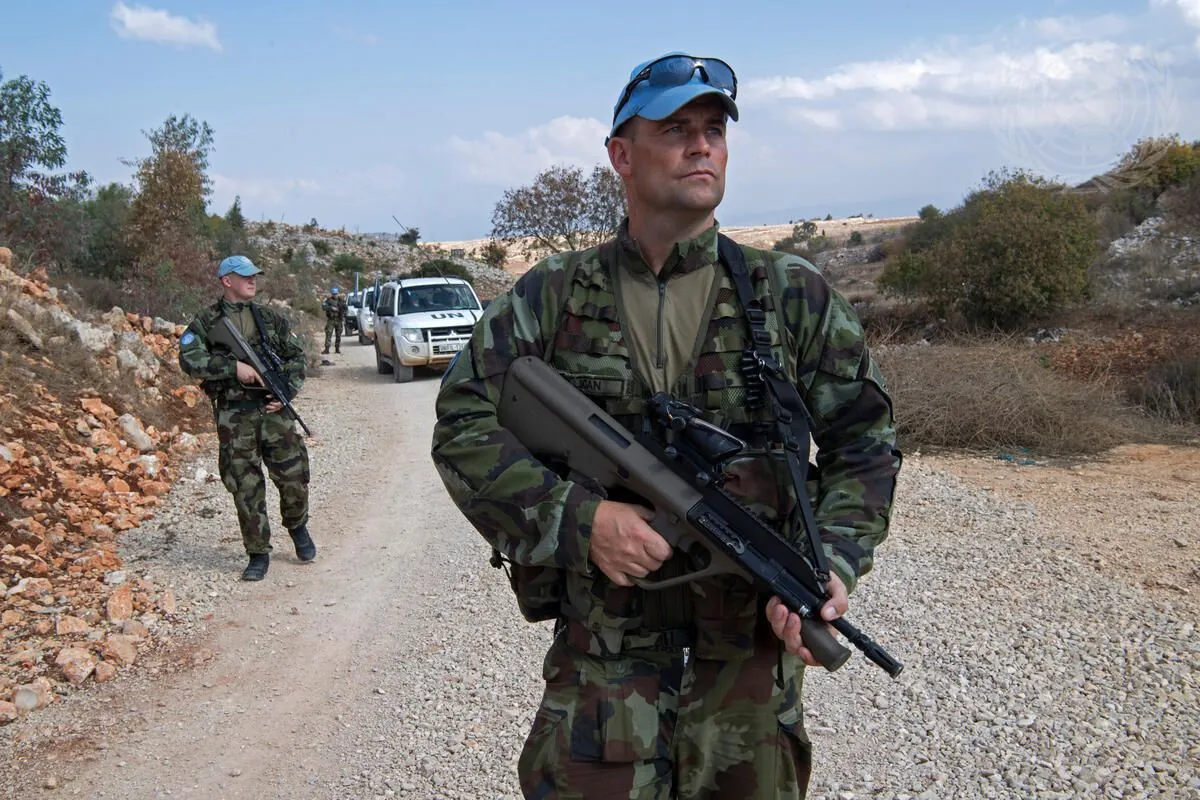UN Extends Lebanon Peacekeeping Mission Amid Regional Tensions
UN Security Council unanimously renews UNIFIL mandate in Lebanon for another year. US calls for future changes to address issues with Hezbollah and other actors impeding full implementation of Resolution 1701.

The United Nations Security Council has unanimously voted to extend the mandate of the UN Interim Force in Lebanon (UNIFIL) for an additional year. This decision, made on August 28, 2024, comes at a time of heightened tensions in the region.
UNIFIL, established in 1978, has been a crucial presence along the Lebanon-Israel border for over four decades. The peacekeeping mission, currently comprising about 10,000 personnel from 46 countries, operates on land, sea, and air to monitor the cessation of hostilities along the approximately 120-kilometer border, known as the Blue Line.
Lebanon's Deputy UN Ambassador, Hadi Hachem, welcomed the unanimous vote, stating it demonstrates the international community's commitment to Lebanon's stability. He emphasized the Lebanese people's desire for peace and rejection of conflict.

The renewal of UNIFIL's mandate occurs against a backdrop of recent escalations between Hezbollah, a powerful Lebanese militant group and political force, and the Israeli military. These tensions have raised concerns about the potential for wider regional conflict, particularly in light of ongoing hostilities elsewhere.
Danny Danon, Israel's UN Ambassador, issued a stark warning to Lebanon, urging the country to confront Hezbollah or risk being "dragged into chaos and destruction." This statement underscores the complex dynamics in the region, where Hezbollah's influence in southern Lebanon has created friction with UNIFIL's expanded mandate, established by Resolution 1701 following the 2006 Lebanon War.
"I have a message for the Lebanese people: You and your government have a choice to make. Confront Hezbollah today, or watch as your country is dragged into chaos and destruction."
The United States, while supporting the extension, has called for future changes to address challenges posed by Hezbollah and other actors that impede the full implementation of Resolution 1701. This resolution, adopted after the 34-day conflict in 2006, aimed to strengthen UNIFIL's role in supporting the Lebanese army and maintaining a weapons-free zone in southern Lebanon.
As Lebanon grapples with ongoing political and economic challenges, including a presidential vacancy since October 2022 and a severe economic crisis that began in 2019, the continuation of UNIFIL's mission takes on added significance. The peacekeeping force's presence remains a critical factor in maintaining stability along the volatile Israel-Lebanon border.
The unanimous decision by the 15-member Security Council reflects the international community's recognition of UNIFIL's importance in regional de-escalation efforts. However, it also highlights the persistent challenges in fully implementing Resolution 1701 and addressing the complex political and security landscape in Lebanon.


































